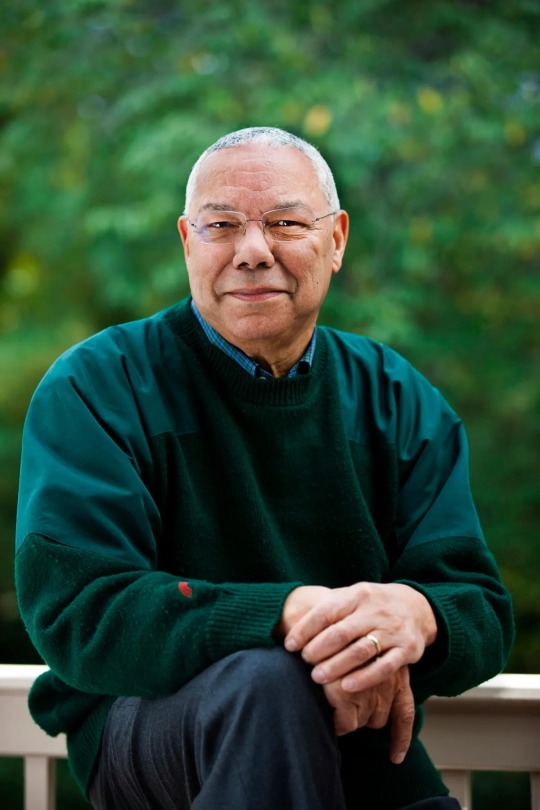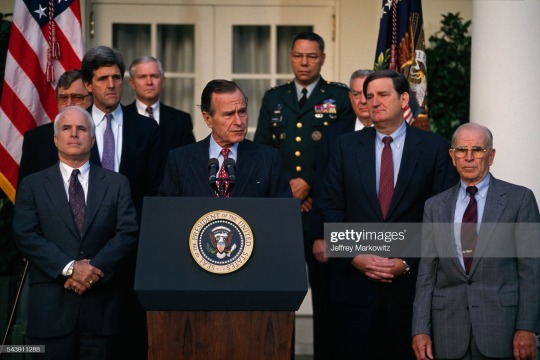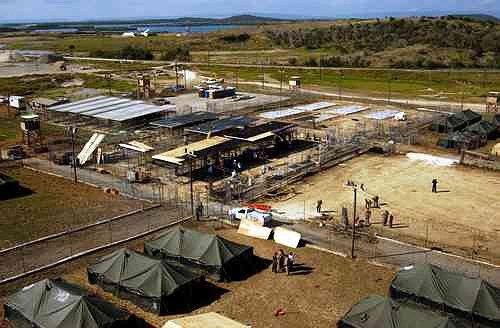#colin powell
Text

Seal of the United States Coast Guard owned by General Colin Powell, 1989-93.
8 notes
·
View notes
Photo

57 notes
·
View notes
Quote
Have a vision. Be demanding.
Colin Powell
#Colin Powell#thepersonalwords#motivation#quotes#poetry#literature#relationship quotes#writing#words#love#relationship#thoughts#lit#spilled ink#inspiring quotes#life quotes#quoteoftheday#love quotes#poem#aesthetic
71 notes
·
View notes
Text
Colin Powell's 13 Attitudes of Leadership, No. 5: Be careful what you choose: you may get it.
17 notes
·
View notes
Text
A dream doesn't become reality
through magic; it takes sweat,
determination and hard work.
(Colin Powell)
26 notes
·
View notes
Text


#malcolm x#assassination#cia#colin powell#condoleezza rice#united nations#apartheid#save palestine#ethnic cleansing#israel is an apartheid state#seek truth#free palestine 🇵🇸#genocide#illegal occupation#israel is committing genocide#israeli war crimes#the media will have you hating those you should be defending#seek the truth and share it#spread awareness#this was NEVER about Hamas#it has been going on since before hamas even existed#open your eyes#the US is complicit in genocide and war crimes again#not in my name#never again means never again for ANYONE#susan rice#israeli lies#propaganda kills#lessons never learned#this didnt start last October. its been happening for literally generations
4 notes
·
View notes
Photo

Colin Powell (1937-2021)
Former United States Secretary of State
18 notes
·
View notes
Text
Scott Ritter Ancien inspecteur en désarmement pendant la guerre d'Irak : "Nous sommes littéralement une nation qui vit sur un trône de mensonges"
#etatsunis🇺🇸#etats unis#États-Unis#colin powell#saddam hussein#iraq#irak#mensonges#manipulations#guerre
5 notes
·
View notes
Text

Would let them all have their way with me, tbh. From LtoR, I can name: John McCain, John Kerry, Robert Gates, George H.W. Bush, Colin Powell, Bob Smith, and John Vessey. Can anyone help with the two who’s faces are obscured?
Update: Lawrence Eagleburger on the left. Thanks @blusterb8
#George H.W. Bush#John McCain#John Kerry#John Vessey#Robert Gates#Colin Powell#Bob Smith#Lawrence Eagleburger
21 notes
·
View notes
Text


Colin Powell
1 note
·
View note
Text
Declassified Documents Describe China-Taliban Relations and Fears About Uighur Guerillas
Recent allegations that the Uighurs, a Turkic ethnic group native to the Xinjiang Uygur Autonomous Region in the Northwest region of China, are an “attractive constituency” for terrorist groups like Islamic State – Khorasan Province, warrant careful scrutiny, particularly at a time of increased U.S.-Chinese tension. The Chinese government strongly opposes the political movement that seeks an independent Uighur nation-state, in part due to purported concerns about political violence, and Beijing has been accused of violating Uighur human rights. The U.S., however, has indicated its support of the Uighur community in recent years. In January 2023, President Biden stated that ethnic minority communities, such as the Uighurs, continue to face “intimidation, violence, and unequal protection under the law,” a sentiment previously reflected in U.S. press briefings and other statements since at least March 2019.
This was originally published on May 8 2023 on Unredacted. I worked with Unredacted editor (and National Security Archive Director of Public Policy and Open Government Affairs) Lauren Harper to smooth out this article and make sure it flowed better, with edits back and forth from March 2023 to May 2023.
The U.S. stance on the Uighur issue has evolved across recent presidential administrations, and the assessments found in the declassified documents featured in today’s post, which were all released under the Freedom of Information Act (FOIA), reflect those of the first George W. Bush administration. These documents are a selection from the new Digital National Security Archive collection, Afghanistan War and the United States, 1998-2017, which was published in December of last year. The five documents examined in this post primarily detail: friendly Chinese relations with the Taliban in the early 2000s in an attempt to secure assurances about Uighur guerrillas in Afghanistan; a U.S. assessment of threat posed by said guerrillas; and U.S. complicity in allowing Chinese officials to interrogate Uighur detainees held at Camp X-Ray, which was housed at Guantanamo.

Aerial image of Camp X-Ray under construction in January 2002. Photograph by U.S. Navy Photographer's Mate 1st Class Shane T. McCoy.
In March 5, 2001, the State Department’s Bureau of Intelligence and Research issued a one-page secret intelligence brief noting a meeting between Chinese diplomats and Taliban Foreign Minister Wakil Ahmed Muttawakil. The discussion included recommendations from a Chinese fact-finding mission, including assurances that so-called “Xinjiang dissidents” were being trained to fight anti-Taliban groups inside Afghanistan, and not threatening China. The unnamed U.S. diplomat noted that such meetings were indicative of broadening engagement between the Taliban and China, and pointed to evidence of increased commercial contacts. Similarly, then-U.S. Ambassador to China, Joseph W. Prueher, stated in a March 9, 2001, confidential cable to Secretary of State Colin Powell that China’s “beautiful friendship” with the Taliban was rooted in a desire for “stability” and a resolution to the Afghanistan civil war. In his cable, Prueher examined why the Chinese accepted Taliban rule and cited increasing academic and official exchanges. When it came to the Uighurs, he noted Chinese fears that an unfriendly Taliban government could cause “mischief” in the Xinjiang region by supporting those termed “Uighur separatists,” and China’s hope that the Taliban would not support such guerrillas. However, he argued that although China would not formally recognize the rule of the Taliban, China was impressed by “performance and pledges” of the Taliban.
On September 18, 2001, Clark T. Randt, Jr., Prueher’s successor as U.S. Ambassador to China, reported in a confidential cable to Secretary Powell, on a meeting with an ambassador to China who predicted possible Chinese support of the U.S. War on Terror. He also noted that “growing links” between Taliban and China might complicate such support. Part of this cable described Chinese provision of economic cooperation and development aid to the Taliban to accomplish political and economic goals. This included Chinese attempts at convincing the Taliban to “not supply arms and training to separatists in Xinjiang.” These guerrillas were later described as a non-threat to the U.S. A heavily-excised cable sent on September 20 from the U.S. Air Force Office of Special Investigations summarizing the terrorist threat facing U.S. military forces in southern Kyrgyzstan stated this directly. On page three, it noted that Uighurs had proven “capable” in assaults, including against Chinese people, with the attack on an official Chinese delegation from Xinjiang at the Dostuk Hotel in Bishkek, Kyrgyzstan in May 2000. Despite this, the document said that Uighurs did not “threaten US interests in [the] region” even though some fought for the religious extremist group, Islamic Movement of Uzbekistan (IMU).
This perceived lack of threat from the Uighurs could partially explain why the U.S. government granted Chinese officials access to Uighurs imprisoned in Camp X-Ray, which was a temporary detention facility inside the Guantanamo Bay detention camp that had been used by the U.S. government to house Cuban exiles in the mid-1990s. A remarkable passage buried within an unclassified October 2009 Department of Justice Inspector General report, “A Review of the FBI’s Involvement in and Observations of Detainee Interrogations in Guantanamo Bay, Afghanistan, and Iraq,” states that “several Uighur detainees” were subjected to cruel treatment such as sleep deprivation and “disruption” at Camp X-Ray, including food deprivation. These prisoners were either interrogated by Chinese officials or by U.S. personnel at the “behest of Chinese interrogators.” (See pages 183-184.) The lingering questions surrounding the interrogation of the Uighur detainees at Camp X-Ray deserve further scrutiny now that the Biden administration is expressing support of the Uighurs.
For related documents, see our previous blog post, “Declassified U.S. Intelligence Documents Describe Taliban History with Illicit Narcotics Trade,” the Archive’s Afghanistan Project, and the Archive’s China Documentation Project.
#uighurs#china#terrorism#human rights#biden#foia#declassified#afghanistan#camp x-ray#gitmo#detention#prisoners#joseph w prueher#ambassadors#taliban#colin powell#xinjiang#kyrgyzstan#usaf#dostuk hotel#cuban exiles#doj#interrogation#unredacted
2 notes
·
View notes
Text
Putin: "In Ucraina abbiamo prove sulla creazione di armi batteriologiche da parte degli Usa".
In esclusiva su Tumblr, ecco le prove:

12 notes
·
View notes
Quote
There are no secrets to success. It is the result of preparation, hard work, and learning from failure.
Colin Powell
#Colin Powell#thepersonalwords#motivation#quotes#poetry#literature#relationship quotes#writing#words#love#relationship#thoughts#lit#spilled ink#inspiring quotes#life quotes#quoteoftheday#love quotes#poem#aesthetic
60 notes
·
View notes
Video
youtube
3 notes
·
View notes
Text
Experts often possess more
data than judgement
(Colin Powell)
32 notes
·
View notes
